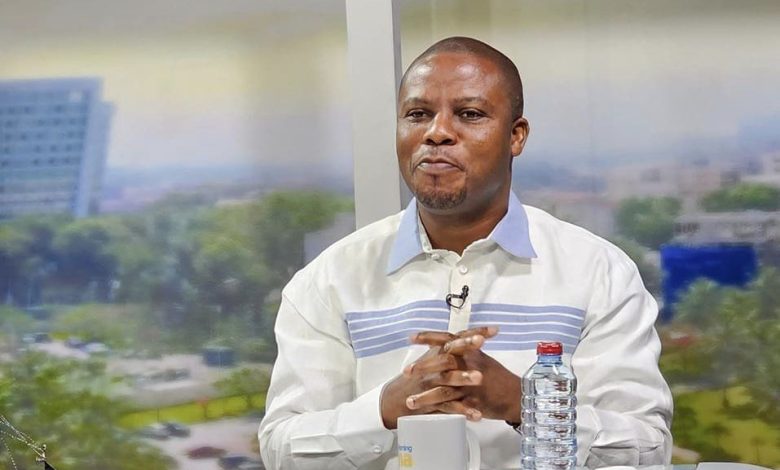ACCRA — Former Bortianor Ngleshie Amanfro MP Sylvester Tetteh has leveled explosive charges against the ruling National Democratic Congress (NDC), accusing it of reaping the rewards from the fiery broadcasts of U.S.-based commentator Kevin Taylor while stifling dissent from the opposition New Patriotic Party (NPP). Tetteh’s salvo, delivered on Metro TV’s Good Evening Ghana with host Moro Awudu, paints a picture of selective free speech enforcement, where NDC allies evade scrutiny even as NPP figures face alleged crackdowns.
“The NDC is a beneficiary of Kevin Taylor‘s assault on people. This is the lowest form of democracy this country has experienced,” Tetteh, a former National Youth Authority boss and staunch NPP loyalist who is eyeing the General Secretary Post of the NPP, declared. He argued the governing party has “weaponised free speech against its opponents,” pointing to a pattern of investigations and arrests targeting NPP voices in recent months— from media personalities to party executives—while Taylor’s unfiltered critiques of the previous administration went unchallenged. Tetteh’s outburst underscores deepening rifts in Ghana’s polarized political arena, nine months after President John Dramani Mahama‘s NDC swept the December 2024 elections, ending the NPP’s eight-year reign amid economic turmoil.
Taylor, a polarizing figure with a massive online following via his Loud Silence TV on YouTube, built his brand railing against corruption and mismanagement under ex-President Nana Akufo-Addo. His style—blunt, often profane takedowns—drew millions of views and NDC applause during the campaign. Post-election, however, Taylor has toned down attacks on Mahama, focusing instead on policy critiques, which Tetteh claims reveals NDC complicity. “Why are NPP voices sanctioned while Taylor’s harsh commentary goes unchecked?” Tetteh pressed, citing cases like the detention of NPP communicators over social media posts deemed inflammatory.
Tetteh’s comments timed with the NPP Youth Wing’s planned “Yɛn Suro Ahunahuna” protest on September 25, 2025—a Twi phrase meaning “We Are Not Afraid of Threats.” The march, kicking off at Obra Spot near Kwame Nkrumah Circle in Accra, aimed to spotlight what organizers call “harassment, intimidation, and abuse of power” by state institutions like the National Security and police. Led by the National Youth Organizer of the NPP, Salam Mustapha and and other key national figures of the New Patriotic Party, the demonstration brought together hundreds of party faithfuls and a cross-section of the Ghanaian population, echoing similar NPP rallies against perceived witch-hunts. Security was heavy and tight as protesters marched through Ring Road, wielding placards with various inscriptions to drum home their concerns.
Ghana’s free speech landscape has grown contentious since the transition, a phenomenon that is not peculiar to the recent change in government. The NDC’s “Reset Ghana” agenda promised reforms, including media protections, but opposition cries foul over what they describe as selective prosecutions under laws like the Electronic Communications Act. NPP Chairman Stephen Ntim recently decried “political persecution,” linking it to over 20 party members summoned since January. This mirrors global trends in post-election consolidations, where winners tighten media reins—think Turkey’s crackdowns or India’s sedition cases.
Countering Tetteh, Jirapa MP Cletus Seidu Dapilah, appearing on the same panel, dismissed claims of favoritism. “Our government is not protecting Kevin Taylor. He is not even a member of the NDC,” Dapilah shot back, insisting investigations target threats to stability, not politics. He pointed to NDC efforts like the repeal of the Criminal Offences Amendment Act’s “fake news” clause in July 2025, aimed at safeguarding expression. Dapilah accused the NPP of using the protest to stoke division.




